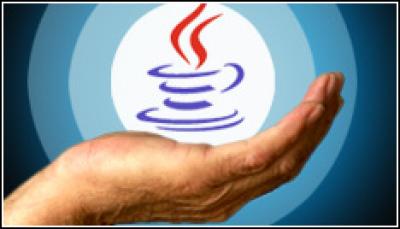What Oracle Means For Java

Oracle’s experience in Java could make it a better home for the technology than IBM, say insiders in the Java community
A developer and executive at an ISV in the Java ecosystem who requested anonymity said he believes the Oracle-Sun deal is good for Java. “Sun never figured out a way to make money on Java,” the developer said. “And Oracle likely won’t even try. I like the idea of having ‘not IBM’ controlling Java so there is a yin-yang balancing act for the technology. Oracle fighting with IBM at a peer level is actually better than the current balance of a dying Sun fighting with IBM. The tension will ensure that Java stays relatively on track. Everyone’s infrastructure depends on Java EE app servers, so I don’t expect Oracle will upset the apple cart. The fact that Sun licensed the Java source as GPL [General Public License] keeps anyone from doing anything interesting with it without signing a deal with Oracle anyway.”
Meanwhile, another Java expert who requested anonymity said of the deal, “I think it’s great. I was really worried [about] if IBM could handle it, and what it would have meant to the future of Java if IBM was the buyer. Oracle should have done the deal ‘with’ IBM to give IBM the hardware business and jointly owned or ‘opened up’ the Java/Solaris/software side of it, since it so greatly benefits both IBM and Oracle. In truth, IBM has the optimal business to benefit from Sun’s hardware business, but only Oracle has the heft to deal with Sun’s Java business and responsibilities.”
Sacha Labourey, former CTO of Red Hat’s JBoss division, said he believes he knew what to expect from IBM as the steward of Java, but is not quite sure with Oracle—although he will give the company the benefit of the doubt.
Said Labourey:
IBM’s commitment to a truly open JCP [Java Community Process] was a given; they’ve shown that for a long time by having all of their recent JSRs [Java Specification Requests] led in a truly open way. Oracle is obviously a different beast and their business practices have had more to do with vendor lock-in than creating equal playing field ecosystems. That being said, I think Oracle really understand[s] the vital need to revive the Java ecosystem as a whole and, unlike Sun, will know how to leverage the related side effects to their benefit. Consequently, the big question is whether Oracle will be credible in this new role of the Java referee. Since it will be very hard for them to alleviate those fears—it is hard to get your virginity back—a good solution would be for them to cooperate very closely with well known, good, open citizens such as Red Hat and IBM. Otherwise Oracle will look like a boxer in a tutu.
Oracle’s acquisition of Sun also could help reconcile the company’s approach to the OSGi (Open Services Gateway initiative). Eric Newcomer, former CTO at Iona Technologies and current co-chair of the OSGi Enterprise Expert Group, said, “From my point of view as OSGi EEG co-chair, I know that Oracle has been a strong supporter of the enterprise OSGi effort, and as this effort bears a strong relationship to the future direction of enterprise Java, I think it’s good news. Sun had shown a division of opinion on OSGi, embracing it in GlassFish but undermining it in Project Jigsaw, and I am hopeful Oracle’s acquisition of Sun will resolve this issue in a positive way.”